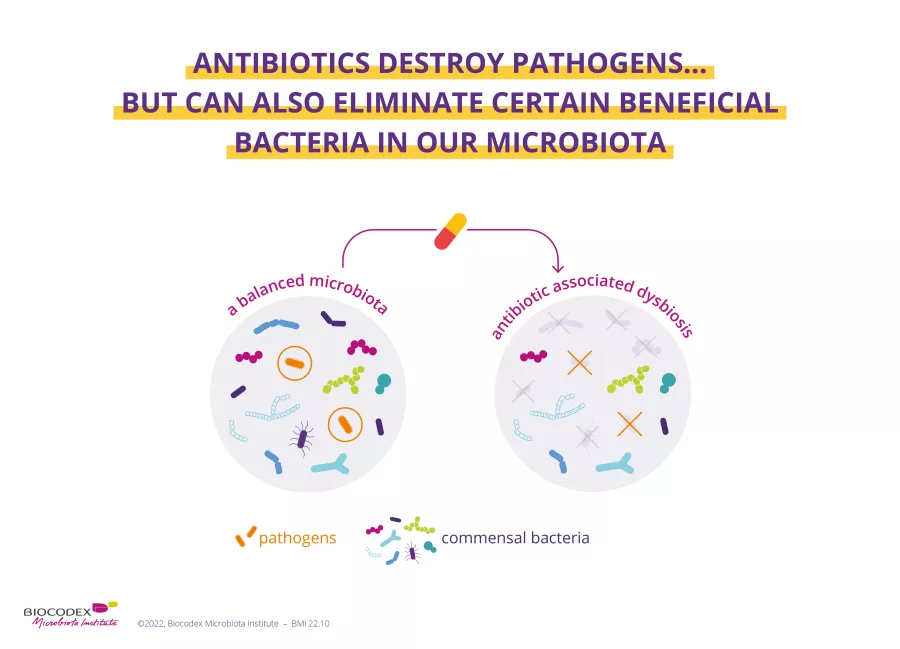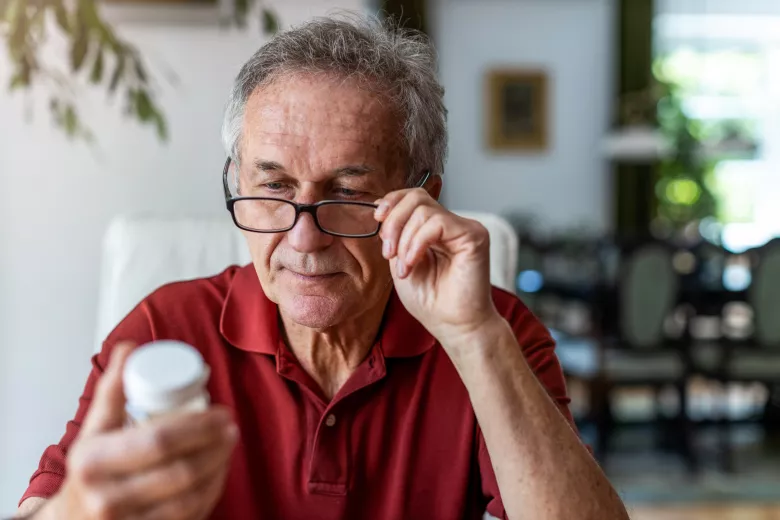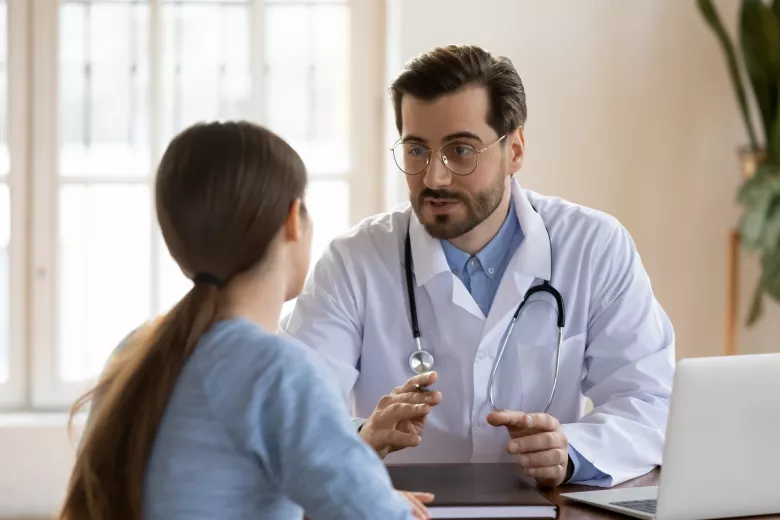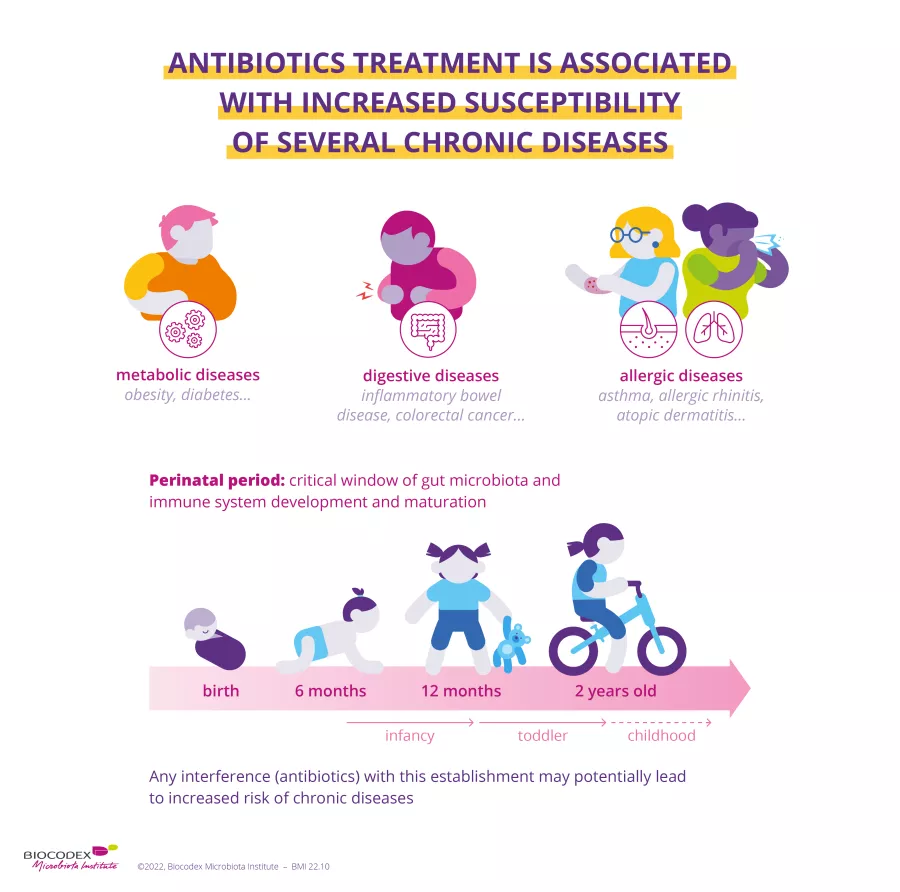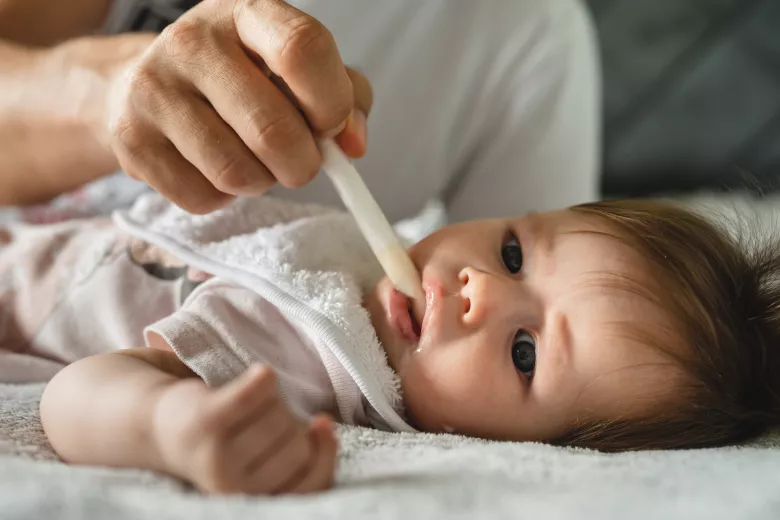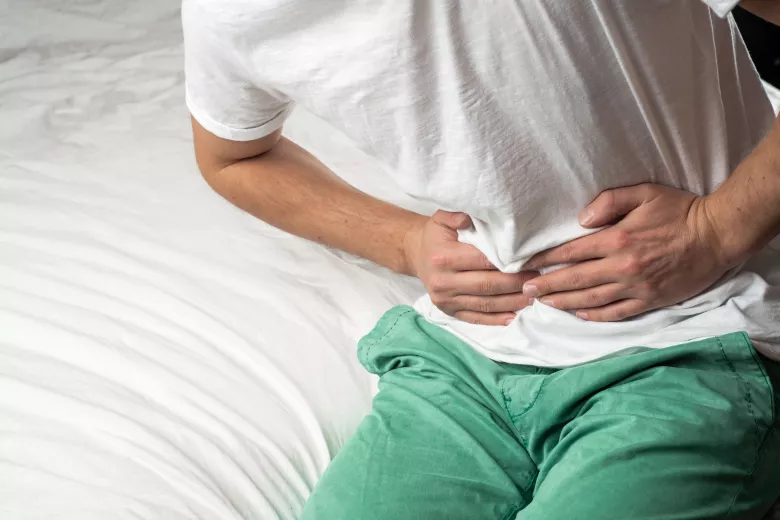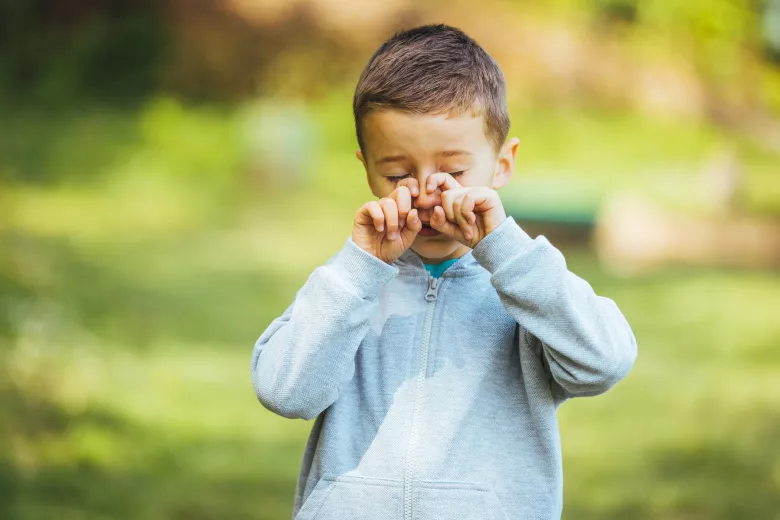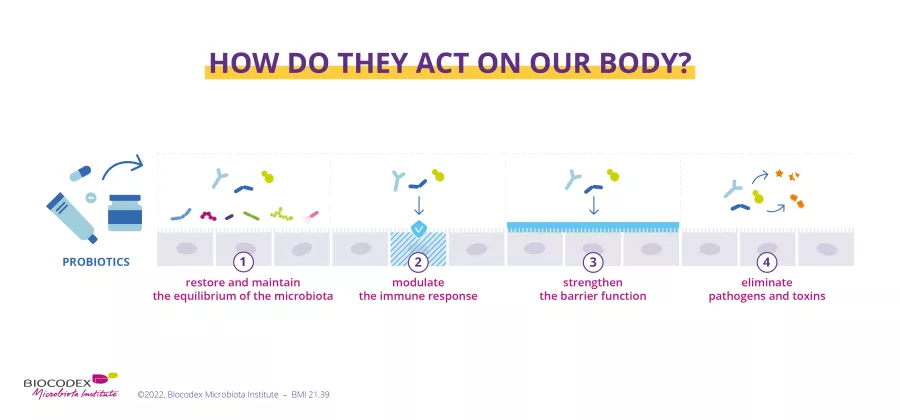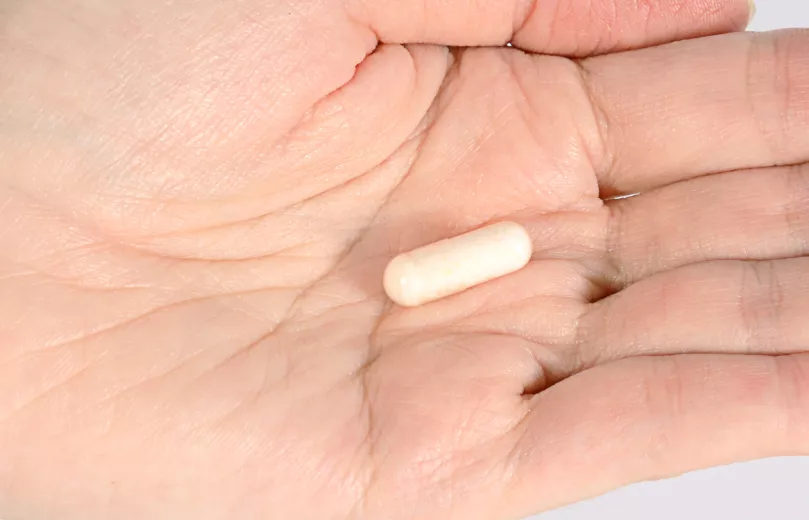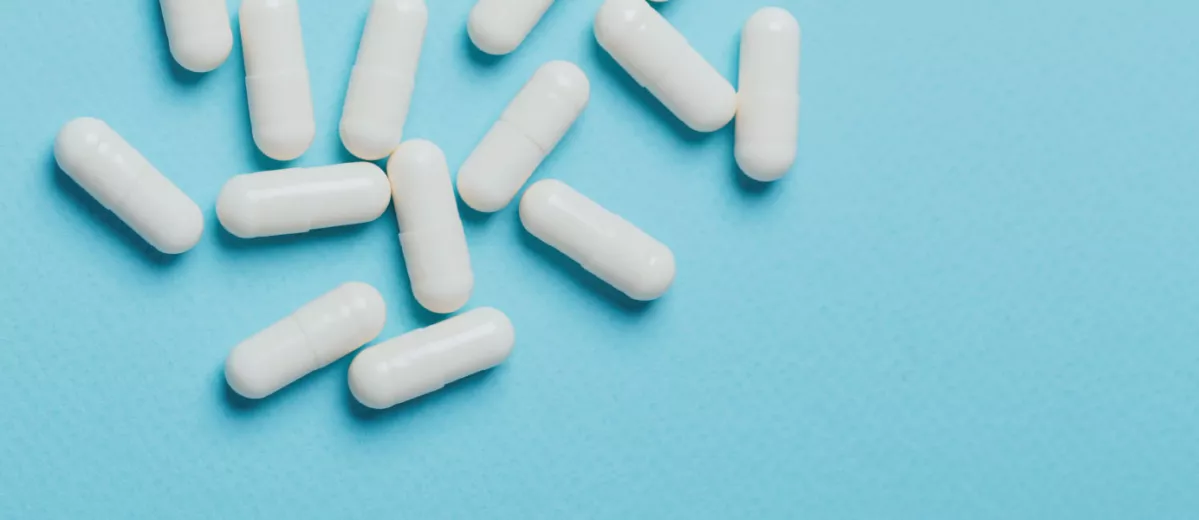Antibiotics: what impact on the microbiota and on our health?
Despite their undeniable usefulness in the fight against infections, antibiotics today pose serious public health challenges: their excessive and inappropriate use leads to the emergence of numerous resistances, which, in the long term, could eventually make them ineffective. Moreover, antibiotics can also destroy certain beneficial bacteria within our microbiota.
- Learn all about microbiota
- Microbiota and related conditions
- Act on your microbiota
- Publications
- About the Institute
Healthcare professionals section
Find here your dedicated section
Sources
This article is based on scientific information
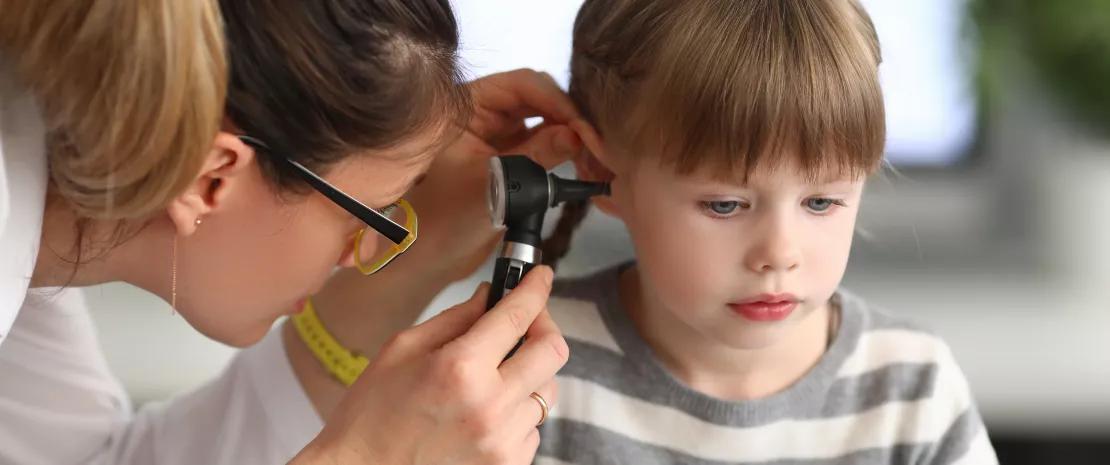
About this article
Table of contents
Table of contents
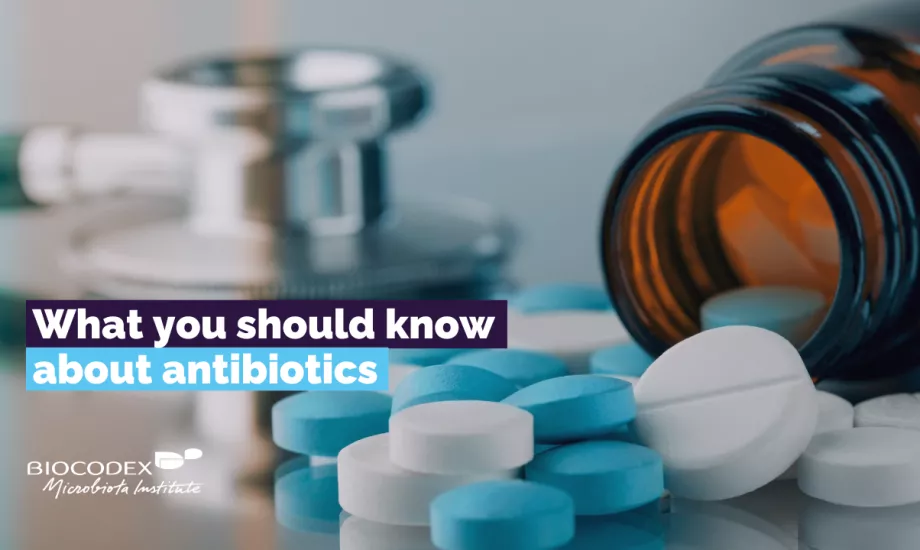
On the occasion of the World AMR Awareness Week organized each year by the WHO, the Biocodex Microbiota Institute makes a full review.
70 % of people claim to know that antibiotics impact the microbiome
Each year, since 2015, the WHO organizes the World AMR Awareness Week (WAAW), which aims to increase awareness of global antimicrobial resistance.
Antimicrobial resistance occurs when bacteria, viruses, parasites and fungi change over time and no longer respond to medicines. As a result of drug resistance, antibiotics and other antimicrobial medicines become ineffective and infections become increasingly difficult or impossible to treat, increasing the risk of disease spread, severe illness and death.
Held on 18-24 November, this campaign encourages the general public, healthcare professionals and decision-makers to use antibiotics, antivirals, antifungals and antiparasitics carefully, to prevent the further emergence of antimicrobial resistance.
Antibiotics: how do they impact our microbiota?
Antibiotics do not always distinguish between good and bad bacteria. They destroy not only pathogenic bacteria, but also beneficial bacteria in the gut microbiota. These disruptions reduce bacterial diversity, which weakens our natural defenses and promotes certain imbalances.
Discover our articles to better understand how antibiotics influence our microbiota:
Antibiotics: what are the long-term effects on our health?
Early or repeated exposure to antibiotics can have a lasting effect on the composition of the microbiota and increase the risk of immune, digestive, or allergic disorders. Its effects do not always stop at the end of treatment. Their influence on the microbiota can leave significant traces on our health. These disturbances remind us of the importance of sensible use to protect our long-term health and limit imbalances in the microbiota.
Discover how antibiotics can influence our health from an early age:
Antibiotics: why is antibiotic-associated diarrhea under the spotlight?
Post-antibiotic diarrhea is a common consequence of intestinal microbiota disrupted by drug treatment. By altering the protective flora, certain antibiotics pave the way for imbalances or the proliferation of opportunistic bacteria. Restoring this balance is essential for maintaining digestive health.
Explore our articles to understand the link between antibiotics, microbiota, and diarrhea:
Antibiotics: what is "antibiotic resistance"?
Antibiotic resistance occurs when certain bacteria are no longer killed by drugs. Antibiotics destroy the microbes responsible for infections, but also other beneficial bacteria. Those that resist can then multiply and pass on their resistance to others, making infections more difficult to treat.
Discover our articles to better understand antibiotic resistance:
Antibiotics: can we protect our microbiota?
In response to the disruption caused by antibiotics, there are solutions available to support the microbiota: reduced exposure to antibiotic treatments, a varied diet, and the use of prebiotics and probiotics. These allies help restore bacterial balance and reduce the effects of treatment-induced disruption, leading to better overall health.
Discover how to preserve the balance of your microbiota when taking antibiotics:
The International Microbiota Observatory
Recommended by our community

"Yes, handle with care or they will not ever work anymore, as all germs and microbes will be immune!" - Kathy Perratore
"We knew that somebody should have said that a long time ago" - Daniel Matthew Covey
"True." - Connie Booth
"True" - Linda LeBlanc





